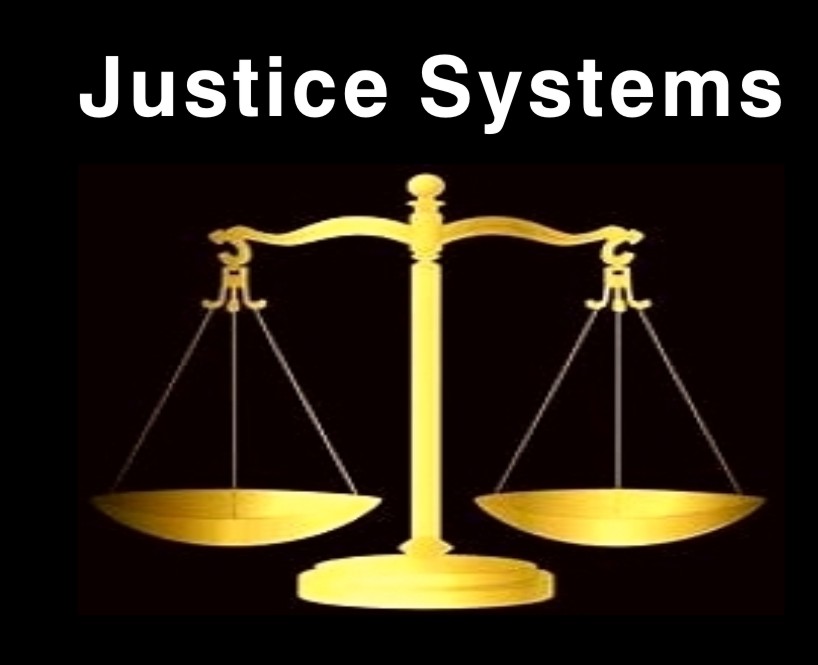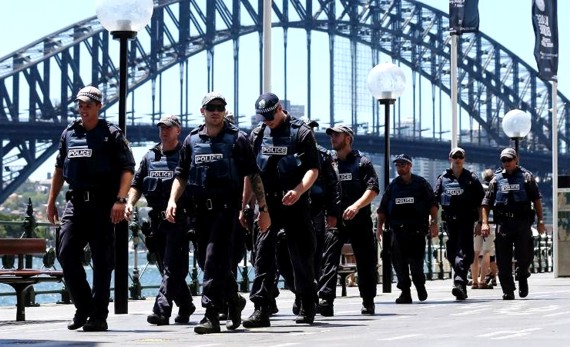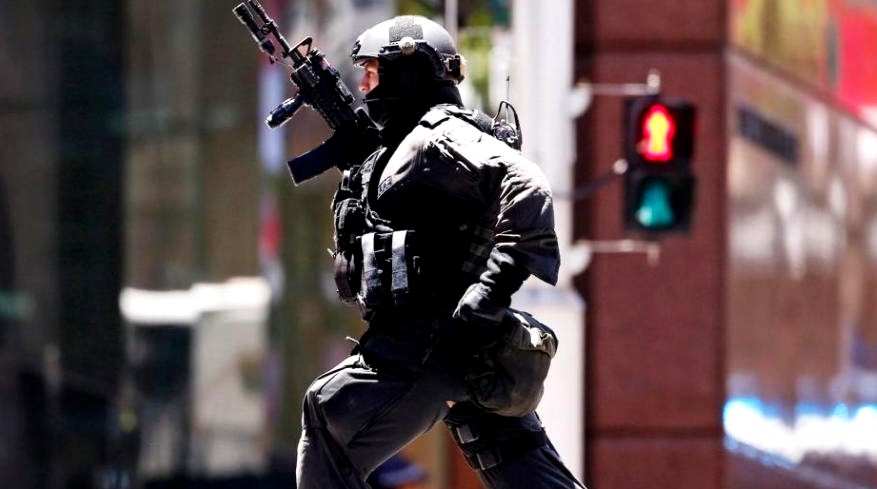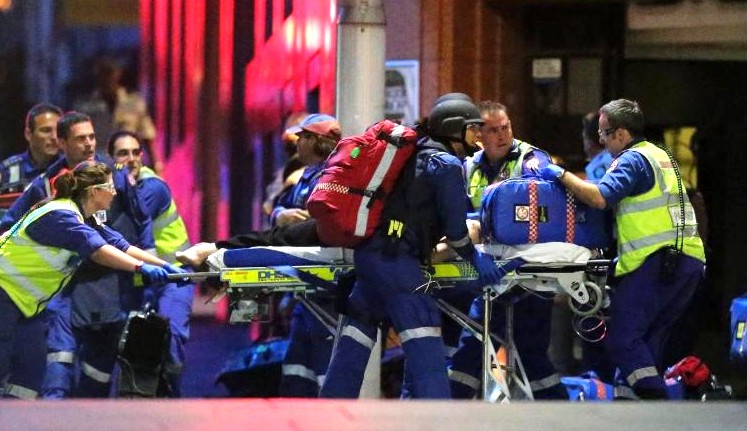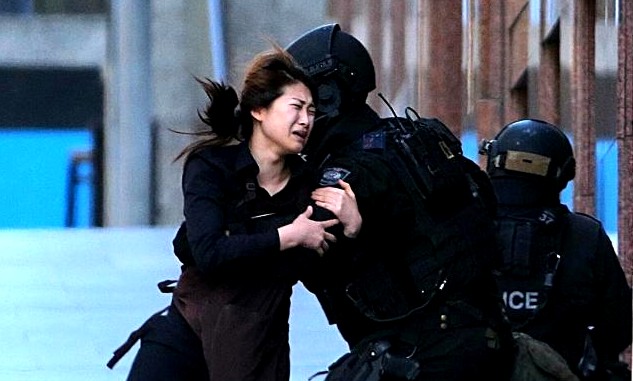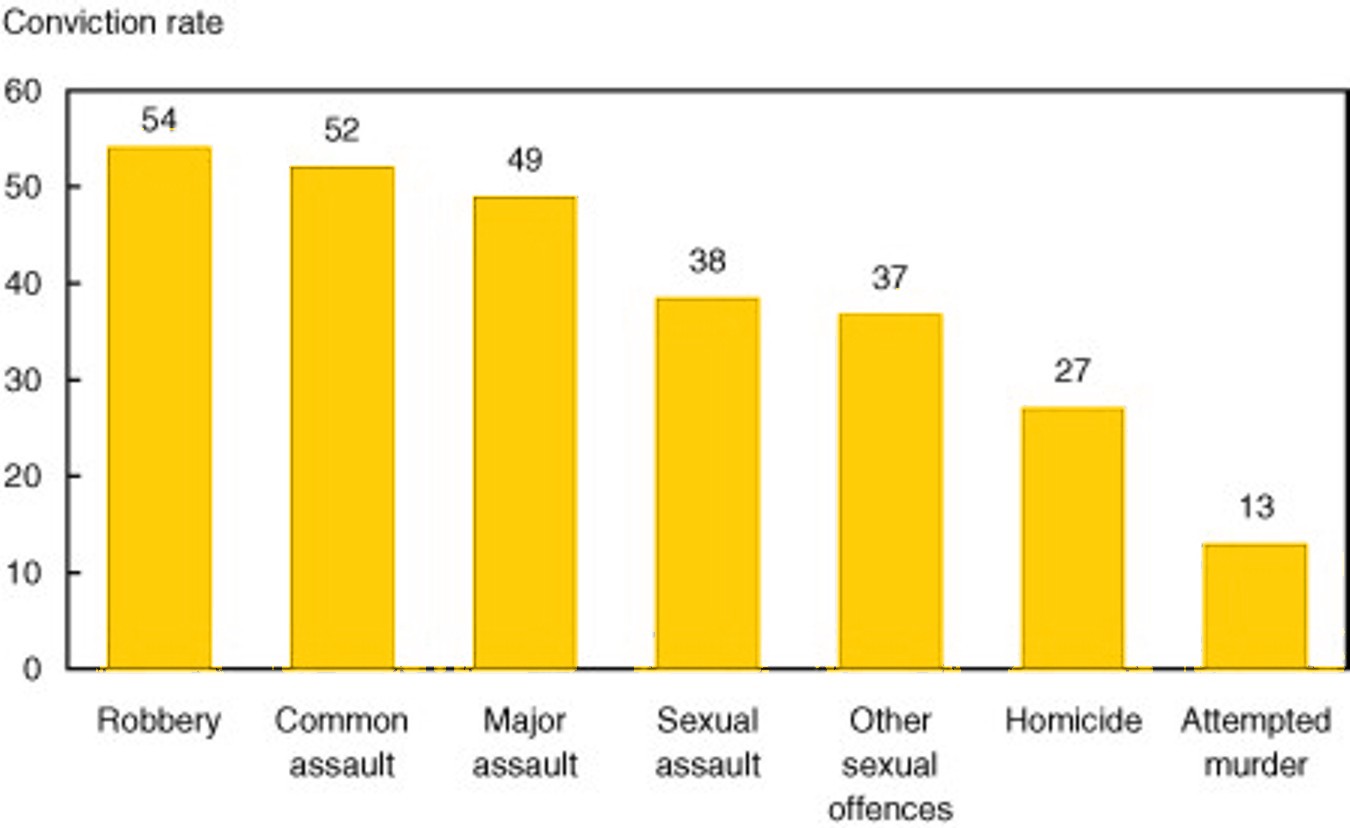
Category: Europe context
A Majority May Vote “No” In Referendum 4 December, Maybe Transforming Prospects In Meredith’s Case
Posted by Peter Quennell
The justice chunk of the huge package of reforms Italy is voting on 4 December probably appeal to pretty well everybody.
They address the awful slowness of the Italian courts and the repetitions of process steps to get it “just right” which too often result in just the opposite. They would tilt back a little toward the victim who too often gets “disappeared” just as Meredith did.
But they are chained to the parliamentary, economic and educational reforms, which PM Renzi cooked up with ex-PM Berlusconi. Maybe not such a smart idea.
They passed with only a bare majority in parliament, hence the referendum. Hence also Renzi’s promise to resign as Prime Minister if the electorate votes against them.
Those reforms are seen by young people in particular as amounting to a powergrab by the center-right and a move away from free college-level education (just when the US may be about to do the opposite).
PM Renzi may or may not have angled for the strange Fifth Chambers outcome in Meredith’s case. But he lost popularity for seeming bending to widely-suspected US arm-bending on this and some other issues even though he and President Obama seem to have not much in common.
If Renzi does go, we are told that prospects for a turnaround in Meredith’s case could become dramatically better. The politics would become right for this case to proceed.
Keep watching!
Counterterrorism: Another Way Italian Law Enforcement Is An Effective Model For Everywhere Else
Posted by Peter Quennell

We have often mentioned these major justice-system pluses:
(1) That Italy has one of the industrialized world’s lowest crime rates and that US cities have been observing its model.
(2) That it has a very prominent and much admired police presence, and a small and much admired court and penal system.
Now Thomas Williams is reporting this third big plus from Rome in Breitbart Business News
A leading military analyst is citing Italy as a model of counterterrorism done right, pointing out that despite many factors going against it, Islamic terrorists have failed to kill a single person on Italian soil.
In the most recent issue of Nikkei Asian Review, Romanian born political scientist and military analyst Edward N. Luttwak lays out a persuasive theory explaining how Italy has been so successful in thwarting Islamic terror attempts. In a word: Italy is not afraid to deport those it considers to be a threat to national security.
In his essay titled “Doing Counterterrorism Right,” Luttwak contrasts Italy with France and Belgium, noting that although Italy is much more vulnerable than they are, it has been far more effective at stopping would-be terrorists before they strike.
So where France has been “caught by surprise again and again by terrorist attacks with many lives lost” and in Belgium “terrorists have been coming and going for years, buying military weapons with remarkable ease,” Italy has remained unscathed.
It would seem that Italy doesn’t have much going for it. It has porous borders and a Muslim population that exceeds 2 million and has played an active role in military expeditions in Islamic territories. Moreover, the Vatican is the “most iconic target in Europe,” and tops the list of objectives of the Islamic State, Luttwak observes. And yet, “nobody has been killed by Muslim terrorists in Italy.”
Italian counterterrorism has been on full alert since 9/11, Luttwak says, and its combined forces “have detected and interrupted hundreds of terrorist plots large and small, at every stage from mere verbal scheming to fully ready actions.”
So where terrorists have successfully attacked in Madrid, London, Paris, Toulouse, Copenhagen, Brussels and elsewhere, in Italy they have been foiled time after time.
Luttwak suggests that Italy’s success is all a question of method, based on the insight that the only thing that can be done to stop potential terrorists is to follow those who are suspected to be truly dangerous around the clock so that they can be arrested or killed at a moment’s notice. Since the numbers of probable suspects can be astronomical, Luttwak says, their numbers must be effectively reduced if this strategy is to bear fruit. And this is exactly what Italy has done.
State intelligence agencies throughout Europe monitor suspects, filling out reports and keeping files, but they often fail to take the action needed. The Italians, however, immediately conduct an interrogation on credible suspects, and many are sent home or arrested, if their situation merits it. Italy currently has more than 180 radical imams in prison, Luttwak notes.
Employing this method, Italian authorities are able to keep numbers of suspected potential terrorists within a reasonable range and thus are able to monitor them effectively.
Earlier this month, Franco Roberti, the head of Italy’s anti-mafia and counterterrorism task force, said he intended to protect citizens from the danger of terrorism “by adopting all the preventive measures necessary,” and noted that “we must be prepared to give up some of our personal freedoms, in particular in the area of communication.”
The fact that the Italians lump together anti-mafia operations with counterterrorism is also telling. Unlike other European states, with the exception perhaps of the UK, Italy has a long history fighting serious organized crime within its borders, coming from the different branches of the Italian mafia working in various parts of the peninsula.
The Italian interior ministry has reportedly also increased its “targeted expulsions” of persons considered to be a risk to national security. So far this year, 55 individuals have been deported and the ministry has said the numbers will only grow.
According to Italy’s Interior Minister Angelino Alfano, intelligence and counterterrorism units are reevaluating information gathered in recent months on some 56,000 people, scouring case files to see whether anything could have been overlooked.
Given Italy’s impressive counterterrorism track record, it may be about time for other European nations to sit up and take note.
Did The State Department Offer Assurances To Knox She Never Would Be Extradited?
Posted by Ergon

US Sec of State Kerry (discussing Snowden) really needs extraditions to work
1. Overview
This is the first of two posts on the real source of an increasing flow of anonymous but seemingly official State Department claims that Knox’s extradition is not in the cards
2. The Current Italy/US Extradition Treaty
As repeatedly explained here by posting lawyers the Italy/US treaty is deliberately written to exclude any politics.
If either nation has arrived at a guilty verdict of someone currently in the other nation by following its own laws, then the other nation deliberately has no legal option but to extradite them to serve their term.
So far neither nation has ever refused to do what the treaty says and so far politics has never intervened. That helps both nations in pursuing other extradition cases around the world.
3. Claims By An Anonymous Source
“Will Amanda Knox Be Dragged Back to Italy in Murder Case?” This was by Nina Burleigh in a cover story in Newsweek on March 19, 2015 quoting an anonymous source.
A State Department source tells Newsweek that diplomats in both Italy and the U.S. expect an extradition request to be denied: “I don’t think either Italy or the U.S. wants a major burr under our saddle in terms of relationships between our countries, and this would be that, if the Italians pushed it.” If they do, the source adds, there “is not any way” the U.S. will arrest Knox, nor will it have her declared a fugitive.
The elected Italian government in Rome is separate from the judiciary, and traditionally the two branches do not have warm relations. “I know the Italian government was rolling its eyes” over the prospect of the case reaching this phase, the State Department source says, adding that Rome faces “a real political problem” if the judiciary requests extradition. The American diplomat predicts the Italian court won’t ask to extradite.
It seems that ever since Amanda Knox was wrongfully acquitted by the Hellmann appeals court of Perugia in 2011 we have been inundated with unsourced reports that “the United States would never extradite Amanda Knox.
Going back several years to the Daily Mail, Guardian, The Express and various American media, they all seemed to be reading from the same script:
- She hadn’t received a fair trial.
- American public opinion would “˜never allow her to be sent back”.
- The Secretary of State would quietly prevail upon his counterpart in Italy to not request extradition.
And, as the final appeal of Amanda Knox and Raffaele Sollecito came up to the last stretch it seemed that these same hacks were repeating the same talking points, even though much has changed since 2011.
These were the basic points, reported over and over in the main stream media till it almost seemed like a guarantee. So I have been looking for the last three years to verify the truth of that. And, who made that promise, if any were made? These were the basic parameters of my search, and I had to tune out the background noise of “˜double jeopardy” and “˜dueling extradition experts”.
Then I had to look for the “˜unnamed source” quoted in all the news reports.
These possibilities came up:
- WA US Senator Maria Cantwell spoke to her colleague Sen. John Kerry of the Senate Foreign Relations Committee who spoke to his brother in law David Thorne, the former US Ambassador to Rome, who passed on a quiet message to the Italian Foreign minister. But would they ever speak on or off the record to reporters or like it very much if it was going to be bruited about?
- Mid-level Friends Of Amanda Knox like Anne Bremner and Judge Heavey had received vague assurances from Senator Cantwell; somehow extrapolated as iron clad guarantee that Knox would never be extradited, never mind there has not been any precedent I can find that would apply to a similar case like this.
- Someone in the Department of Justice and/ or State is feeding them shite.
- The FOA are making it all up. That last was my favourite, given that they are led around by people like Steve Moore, Bruce Fischer, and J. Michael Scadron.
4. My Search For The Truth
This has been an interesting journey, and as always, things seem to just come together at the last moment. It has helped that I have been watching diplomatic activity up-close all my life.
My father was in the Pakistani Foreign Service stationed in London, so, shortly after I was born, lived in the UK from age 0-3, then with the Pakistan Embassy in Tokyo from age 3-8. We were a cosmopolitan group of embassy brats going to St. Mary’s International School.
My friends were American, Iranian, Turk, Indian, East German, Canadian, New Zealand, points all over. Their parents were all diplomats and I made lifelong friends. My father could have received a posting as assistant to the ambassador to Washington D.C. after that but fate prevailed as he’d been stationed out 8 years and had to be rotated back to Pakistan.
Since that time I kept in touch with my friends and also developed this passion for International Relations and Geopolitics. Traveling to the US and other countries but also meeting over the internet, made many more friends at various levels of the State Department. Saw the changes there as respected career diplomats got replaced by interest groups and major donors to political parties. Such only went to choice postings, of course, but not second or third world countries, so I had many interesting discussions with them over the years.
The Wikileaks cables were a revelation as Embassy intercepts showed the thousand different ways diplomacy led to but also tried to prevent, war. I’d been reading them ever since they first came out so started searching for links to secret discussions with Amb. Thorne. Couldn’t find anything except what already was reported, so reporter Andrea Vogt’s FOI request find was a goldmine:
NEWLY RELEASED EMBASSY CABLES SHED LIGHT ON STATE DEPT HANDLING OF AMANDA KNOX CASE
By Andrea Vogt
FEBRUARY 13 “Newly released state department documents show the U.S. Embassy in Rome declared the Amanda Knox matter “Case Closed” in a cable to Washington just days after the American’s clamorous 2011 acquittal. The memo reveals wishful thinking on the part of some U.S. diplomats, who were only too eager to see the thorny case come to a clean close.”
In Update March 23, 2015 posted today, Andrea Vogt says this:
In a 2011 Italian embassy cable released as part of several Freedom of Information Act requests I’ve filed on this case (first published Oct 11, 2011) [US] diplomats in Italy mistakenly thought Knox’s acquittal in 2011 would bring to a close this complex and divisive international case. Italy’s Court of Cassation would prove them wrong, overturning her Perugia acquittal and ordering a second appeal in a different venue (Florence) which ended last year with a guilty verdict.
So is a political fix being attempted or already in? See my Part Two Conclusion to be posted next.
The Unsavory Company Knox Would Be Foolish To Aspire To: 160 Americans On The Run From Interpol
Posted by Peter Quennell

Meet eight American women on the run from arrest worldwide.
They are all the subjects of Interpol Red Notices. Right now Interpol has 322 active Red Notices, some 160 of them for Americans, of which 51 are women.
If they have not yet been to trial, they are considered innocent unless and until they are proven guilty. At the same time many have cash rewards on their heads and private citizens are warned not to apprehend them.
None of those eight women above are charged with murder or already found guilty of murder - their alleged crimes include kidnapping, drug-smuggling, fraud and insider trading.
Red Notices are sometimes issued for killers, but they very rarely prove necessary. Regardless of the status of mutual extradition treaties, countries who find they are harboring killers tend to regard them as hot potatoes, and most usually simply arrest them.
Some on the list of 322 may be dead, and many will be living close to poverty. We posted here previously on Interpol and here previously on how the ex CIA chief in Italy Robert Lady was forced out of Panama by an impending arrest for a Red Notice.
Robert Lady has lost everything. Seems better to face the music, and end the doubletalk.
The Dangers Of Not Extraditing Convicted Felons Labeled An Explosive Threat To Other People
Posted by Peter Quennell

Above: Sydney moslems leaving wreaths- for the non-moslems killed
1. Lessons From Australia
It looks like several Australian judges may have wrecked their careers for allowing Man Haron Monis to be at large even though police said he should be denied bail.
Man Haron Monis was the former Iranian who took 17 hostages in downtown Sydney and caused the death of two others and himself. Coming to light is how many times previously the Australian justice system had treated him with kid gloves for major crimes.
Iran tried to extradite the gunman behind Sydney’s deadly hostage crisis years ago, Tehran’s top cop said, amid questions over how the self-styled cleric had found his way to Australia but not onto a watch list…
Monis grew up in Iran as Mohammad Hassan Manteghi. In 1996, he established a travel agency, but took his clients’ money and fled, Iran’s police chief, Gen. Ismail Ahmadi Moghaddam, told the country’s official IRNA news agency Tuesday.
Australia accepted him as a refugee around that time. The police chief said Iran tried to have Monis extradited from Australia in 2000, but that it didn’t happen because Iran and Australia don’t have an extradition agreement.
Australia’s Prime Minister Tony Abbott said he wanted to know how Monis had been granted permanent residency and why he had been receiving welfare benefits for years, despite being able-bodied “if not necessarily of sound mind.”
Monis had a gun licence, a rarity in Australia - and he walked free after being charged for writing letters of hate to families of dead Australian soldiers, and for having a hand in the killing of his wife.
2. The Relevance Of This To Knox
Regardless of extradition treaty situations, countries almost universally extradite convicted murderers. They dont want dangerous people to have another chance to cause deadly havoc in their own midst.
Knox is already a felon for life. If Knox is confirmed guilty of murder next March she will be a DANGEROUS felon for life.
The Italian-US extradition treaty gives a US judge no wiggle room other than to check if the paperwork is in order and then send her on her way.
But another bent judge could again throw a spanner in the works.
How dangerous is Knox? Our psychologists generally think that, untreated, she is not good news. Not a latent serial killer, or one who sits around and plots, but one who could again explosively hit back when she imagines or exaggerates slights.
More than anyone in Perugia, Meredith tried to get along with Knox. But Knox showed no sign of a learning curve. The very heavy drug use went on, the sleeping with a drug dealer went on, the dirtiness and laziness around the house went on, and the noisy sex episodes with strangers through paper-thin walls went on.
She really was the housemate from hell.
For a month or two after Meredith died, Knox was highly erratic about her role in that death, and showed an extreme eagerness to talk with the prosecution which resulted in the long session with Dr Mignini on 17 Dec.
In a move serially misinterpreted by the dimwits of the Knox brigade, the prosecution, suspecting she was both mixed up and high on hard drugs, in effect offered Knox and her team a way to a lesser count, when they said that the murder could have been a taunting attack which spun out of control.
In her book, Knox describes how the family and lawyers worked hard on Knox to destroy all elements of trust. By the summer of 2008 she was in a mood of full-blown paranoid mistrust, and all chances of a lesser charge were gone.
At trial in 2009 Knox was daffy and uncomprehending, making irrelevant interventions and really shooting herself in the foot when she took the stand. Raffaele Sollecito and Patrick Lumumba, almost the last two in Perugia to still give her the time of day, both said she was very odd.
Knox was mentally tested in Capanne Prison and apparently scored high on the psychopathic chart. The four courts hardest on Knox all knew this - the Matteini court, the Ricciarelli court, Cassation, and the Nencini court - which was a major reason why Cassation did not allow bail in April 2008.
Assuming she killed once, in what was an exceptionally barbaric attack, Knox may or may not kill again. She is certainly inciting or condoning a massive amount of dangerous hate toward Meredith’s family and toward the Italian officials of the court.
One unhinged attack has already occured - that of the disturbed Michele Moore against Dr Mignini in the Perugia court - and the British resident David Anderson has screamed at meetings and runs an incessant campaign to stir up hate. Court officials have received messages of hate, and there is a small mountain of false and dangerous accusations against them on the web.
Left untreated and unpunished, a convicted but not extradited Knox would be a killer walking loose on American streets and could continue to condone or incite violence for the rest of her life.
If Knox killed and remains loose, could she kill again or cause others to kill? Any extradition judge needs to ask as the Australian judges did not:
Do we REALLY want to find out?
The Considerable Number Of Suspected Perps That Countries Extradite Daily To Other Countries #2
Posted by Peter Quennell

[Interpol HQ is now in Central France, a new HQ is planned for outside Paris soon.
Extradition: a hardball game.
This is the latest of many posts which include this legal take explaining the gloomy prospects for Sollecito and Knox if their final conviction comes down.
Complete refusals of extradition by any countries other than Russia and China seem increasingly rare, as that can cause a rebound effect and economic retaliation in response. The United States very rarely refuses to extradite.
If anything, the US is stepping up the pace of its extradition cases - both ways. The US at federal and state level is at any one time processing hundreds of requests, and transporting suspected perps back and forth.
These are some of the high-profile extradition cases in today’s news:
The US/Italy Robert Lady case
The twists and turns in the story of the fugitive from Italian justice and former CIA chief in Milan Robert Lady were last posted on here. He scampered out of Central America back to the United States mid-2013.
But now official Washington seems to be giving Mr Lady a very hard time which may have him voluntarily headed to Italy to seek a break.
When the anniversary of 9/11 came around this year, Robert Seldon Lady was moving between low-end hotels around Miami. An international arrest warrant keeps him from returning to his home in Panama. He says he’s flirting with personal bankruptcy, fears for his life, and is “getting pretty desperate.” His marriage is broken. He blames this hard luck on his former employer, the Central Intelligence Agency
Mr. Lady helped CIA contractors and agents snatch an Egyptian Islamist off the streets of Milan and deliver him to an interrogation cell in Cairo. This so-called extraordinary rendition””one of 130 or so carried out by the Bush administration””set in train events that soured America’s relations with Italy and upended the life and career of Mr. Lady and other CIA agents.
Saying “I’m fed up with all this,” Mr. Lady has some extraordinary steps in mind to change his fate. His actions and outspokenness are going to add to the discomfiture of his former bosses at Langley over this messy episode from the early days after 9/11.
If the muddle-headed Knox and Sollecito enablers can find any solace in that, good luck. Mr Lady was a top government employee, who claims he was doing only what he was told.
The Brazil/Italy Henrique Pizzolato case
Believe it or not the former director of the Bank of Brazil has fled to Italy to ensure a fair trial.
Sentenced to 12 years and seven months in prison for bribery, embezzlement and money laundering, Pizzolato announced in a letter that he fled to have, according to him, a new trial in Italy “removed from politics and electoral motives” and in “a court not subject to the impositions of the media”.
Brazil might ask Interpol for a “red notice” which is the highest form of international arrest warrant and often has the same wanted result as formal extradition.
A red notice chills renegades’ possibilities worldwide.
In fact so tough is life on the lam under a red notice that perps often simply cave before too long, and head back to defend themselves or pay their dues without any court moves or official transport required.
The US/Italy Raoul Weil case
Finfacts reported on this case last month.
Raoul Weil, a former UBS wealth management chief, was arrested last weekend in Italy and faces extradition to the United States to answer charges of aiding and abetting tax evaders.
Weil left Switzerland’s biggest bank in 2009 after he was declared a fugitive from US justice by ignoring a criminal indictment issued in 2008. UBS was forced to pay a $780m fine in 2009 after admitting to actively assisting US tax evaders to break US law.
Several Swiss bankers and lawyers have since been indicted in the US for their alleged role in helping wealthy US citizens hide their assets from the tax authorities.
Weil is one of the most high-profile of the accused as a then head of UBS’s wealth management and he is now a temporary resident of an Italian prison, likely fearing a longer spell in a US one.
A Florida court indictment charged Weil with having a prominent role in aiding UBS’s US clients to hide around $20bn in undeclared assets between 2002 and 2007.
He however has strongly denied the allegation but would not risk defending himself in a US court.
Italy is giving Mr Weil a pretty hard time and accedes to all American extradition requests except where the death sentence might be involved.
The US/Russia gangsters case
The US is trying hard to get some Russian gangsters (okay, alleged gangsters) extradited from countries around the world and Russia is resisting this “extraterritorial application of America law”.
U.S. organized crime experts say Russian criminals working overseas often have connections within the Russian government, and that the Russian government’s defense of them is designed to keep those links from emerging in public light….
In the past six months, Russians have been a frequent target of arrest warrants executed at the request of U.S. prosecutors.
On Aug. 1, the Dominican Republic extradited 24-year-old Aleksandr Panin to stand trial in federal court in Atlanta on charges related to cyberscams using SpyEye malware, which enables the theft of online banking information. Panin is accused of stealing $5 million from U.S. banks.
In mid-August, Lithuania extradited an alleged arms dealer, Dmitry Ustinov, to stand trial in the United States for allegedly negotiating to sell restricted night-vision goggles. He faces a 20-year sentence.
Another Russian, Dmitry Belorossov, was arrested at the Barcelona airport Aug. 17 upon triggering an Interpol fraud alert. Belorossov’s extradition to stand trial in the United States is pending.
When U.S. prosecutors seized Liberty Reserve in late May, they said the company had laundered “more than $6 billion in criminal proceeds.” Liberty Reserve allowed clients anonymity and offered them a digital currency, known as an LR, to facilitate payments for criminal activity.
The US/Spain Javier Martin-Artajo case
Banker Javier Martin-Artajo now in Spain is refusing to be extradited to the United states - because the crime he is accused of took place in England. Good luck with that one. JP Morgan Chase Bank has just paid a huge fine in the US so THEY accept the crime took place there.
Outcry In England At Evidence And Jury-Briefing Requirements Which Make Convictions Much Harder
Posted by Peter Quennell

In this post on the CSI Effect we touched on the disturbing declines in convictions throughout much of the world. It is possible that more and more murderers are walking free.
In many countries now the playing field is becoming noticeably tilted against prosecutors and police. One factor may be a growing suspicion of governments which seem to have been captured by the very rich. One factor may be declining budgets as those same governments get more and more into debt. One factor may be TV shows and live court coverage which allow everyone to think they know best.
Especially when narcissistic defendants (many crime-doers are exceptionally self-absorbed which helps in putting on a great defense) twiddle peoples’ heartstrings and cause them to lose their cool.
Another major factor may be legal precautions carried to extremes which go way back and almost grind prosecutors into the dust. In Italy we have described the ultra-cautious legal system at length in posts such as this one and also this.
On Friday in western England Vincent Tabak was found guilty of the murder of Joanna Yeates and sentenced to life in prison which will see him behind bars for at least 20 years.
The defence the jury heard was that he was a shy awkward boy with girls and when he tried to kiss Joanna Yeates (who in fact did not even know his name) he held her mouth for a bit, without her struggling - and suddenly she was dead.
The verdict was something of a squeaker. Now it has come out that the jury was never told things about him that seem highly relevant to the understanding of Tabak and what he did.
First a description of something that happened at trial in Saturday’s Bristol Evening Post.
Vincent Tabak had a secret fetish for strangulation porn that showed women being held by the throat and assaulted by men.
Films portraying blonde women being throttled during sex or tied up and bundled into car boots were found on his laptop computer and were planned as a trump card for the prosecution during his murder trial.
But Mr Justice Richard Field ruled it would have been prejudicial for jurors to hear such evidence.
Nigel Lickley QC put forward a failed application to the judge in the first week of the trial at Bristol Crown Court, before the jury was sworn in.
Mr Lickley said: “They concern the defendant’s interest in porn, but in particular porn depicting violence towards women with their tops raised.
“There are also violent images of women being held by the neck, then being sexually abused by men.
“We submit that these images have a real significance and explain why the defendant held Joanna Yeates by the neck and killed her.
“We submit that it is the case he developed a sexual pleasure from it and that is because he viewed this material.
“There is sexual activity between a man and a woman ““ often bound and gagged…. It is a fact that the women are held by the throat often when gagged ““ as a means of control.”
Another article in Saturday’s Bristol Evening Post describes other key things that the jury never got to hear.
Detective Chief Inspector Phil Jones, who led the murder inquiry, attacked Tabak for being “manipulative” and devising a “cunning” plan in a bid to cover his tracks.
He said: “It has taken ten months to bring this investigation to a positive conclusion, and to provide Joanna’s family and Greg with some closure….
Ann Reddrop, of the Crown Prosecution Service’s complex case unit, branded Tabak a “cunning, dishonest and manipulative” man.
She said: “He was cunning and dishonest towards his girlfriend with whom he maintained a normal relationship, and towards his former landlord, about whom he lied to the police and which in part led to that person’s arrest for the murder.
And get this - shades of Ted Bundy and many other psychopathic killers who played cat-and-mouse with media, police, prosecutors and jury.
“He was manipulative of the police by virtue of his own in-depth research on the internet to keep one step ahead of the investigation prior to his arrest and then made very selective admissions surrounding the circumstances of Jo’s death which sought to cast her in an unfavourable light ““ even when he was giving evidence to the jury.”
One of many similar comments in the UK media is this one in the Daily Mail..
I am glad we have juries but this trial has once again raised issues that many people find hard to comprehend.
Should this evidence have been admissible? Mr Justice Field said that although Tabak’s choice of viewing was reprehensible, it was not valuable enough to outweigh the prejudice it would cause his defence.
There are those who say this is justice at its exemplary best; that criminal trials are often based on negotiations between lawyers and judges about what evidence can be put before a court.
Then there are the rest of us who are left somewhat mystified by the methods used by the legal establishment to ensure justice.
Post-verdict statements by Joanna Yeates’s parents and her boyfriend were much more hard-line than this. And they were among the “lucky” ones who saw their harmer locked up.
